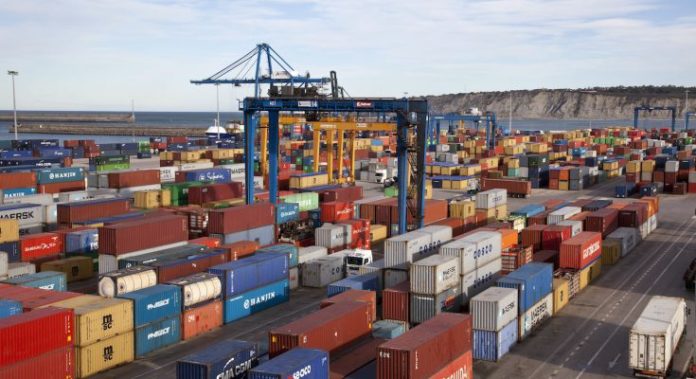Burden of Unreturned Empty Containers Littering Our Shipping Space, by Nweke

NIGERIAN PORTS
By Eugene Nweke
From the SEREC standpoint, estimating the exact loss Nigeria is incurring due to the estimated over 100,000 empty containers littering its ports is complex. However, it suffices to break down the potential financial implications as follows:
*Key Factors Contributing to Losses:*
– *Shipping Costs:* The cost of freighting empty containers back to origin ports is substantial, with estimates ranging from $2,000 to $4,000 for a 20-foot container and $3,500 to $6,000 for a 40-foot container, depending on the route and market fluctuations.
– *Storage and Congestion:* The accumulation of empty containers at ports and along roads leads to congestion, increased storage costs, and potential demurrage fees, which can be as high as ₦60,000 per container per month.
– *Environmental and Health Risks:* Abandoned containers pose environmental and health hazards, particularly if they are “rickety” or unseaworthy, which is estimated to be around 45% of the containers in circulation.
*Potential Annual Losses:*
While exact figures are difficult to quantify, the Importers Association of Nigeria estimates that the country is losing over $500 million annually due to inconsistent exchange rates and other importation challenges related to empty containers.
*Solutions:*
To mitigate these losses, experts recommend:
– *Increasing Exports:* Encouraging Nigerian businesses to boost exports can help balance the number of empty containers and reduce the financial burden on shipping lines.
– *Improved Port Facilities:* Investing in better port infrastructure and management systems can streamline container handling, reduce congestion, and enhance tracking and return logistics.
– *Efficient Container Return Systems:* Establishing effective container return systems can minimize the number of empty containers left in ports and reduce storage costs.
– *NOTE* : As it stands today in the industry, shipping companies charges the Nigeria Shippers in the average of ₦10, 000:00 per day for demurrage after the third period. Then, imagine if the government places a demurrage tax on percentage basis, to every unreturned empty containers after the official 3 months duration in the country. Such additional revenues is enough road/ environmental maintenance fraction.
*Global Best Practices:*
Interestingly, several countries have implemented taxes or fees on unreturned containers after a specified period. Some examples include:
– *European Countries:* Germany, France, and the UK have implemented container detention fees or demurrage charges for unreturned containers.
– *United States:* The US has a similar system, with container shipping lines charging detention fees for containers held beyond the allowed free time.
– *Australia:* The Australian government has implemented a container deposit scheme to encourage the return of empty containers.
*Conclusion:*
In light of these global best practices, it is reasonable for Nigeria to consider implementing a similar system to encourage the prompt return of empty containers and reduce the financial burden on shipping lines. The SEREC has officially written to the Hon Minister of Marine and Blue Economy, proposing the need for the establishment of a strategic container return system, jointly coordinated or administered by the NSC, NPA, and CRFFN.
Fwdr Eugene Nweke Rff HOR @ SEREC
20/06/25
From the SEREC standpoint, estimating the exact loss Nigeria is incurring due to the estimated over 100,000 empty containers littering its ports is complex. However, it suffices to break down the potential financial implications as follows:
*Key Factors Contributing to Losses:*
– *Shipping Costs:* The cost of freighting empty containers back to origin ports is substantial, with estimates ranging from $2,000 to $4,000 for a 20-foot container and $3,500 to $6,000 for a 40-foot container, depending on the route and market fluctuations.
– *Storage and Congestion:* The accumulation of empty containers at ports and along roads leads to congestion, increased storage costs, and potential demurrage fees, which can be as high as ₦60,000 per container per month.
– *Environmental and Health Risks:* Abandoned containers pose environmental and health hazards, particularly if they are “rickety” or unseaworthy, which is estimated to be around 45% of the containers in circulation.
*Potential Annual Losses:*
While exact figures are difficult to quantify, the Importers Association of Nigeria estimates that the country is losing over $500 million annually due to inconsistent exchange rates and other importation challenges related to empty containers.
*Solutions:*
To mitigate these losses, experts recommend:
– *Increasing Exports:* Encouraging Nigerian businesses to boost exports can help balance the number of empty containers and reduce the financial burden on shipping lines.
– *Improved Port Facilities:* Investing in better port infrastructure and management systems can streamline container handling, reduce congestion, and enhance tracking and return logistics.
– *Efficient Container Return Systems:* Establishing effective container return systems can minimize the number of empty containers left in ports and reduce storage costs.
– *NOTE* : As it stands today in the industry, shipping companies charges the Nigeria Shippers in the average of ₦10, 000:00 per day for demurrage after the third period. Then, imagine if the government places a demurrage tax on percentage basis, to every unreturned empty containers after the official 3 months duration in the country. Such additional revenues is enough road/ environmental maintenance fraction.
*Global Best Practices:*
Interestingly, several countries have implemented taxes or fees on unreturned containers after a specified period. Some examples include:
– *European Countries:* Germany, France, and the UK have implemented container detention fees or demurrage charges for unreturned containers.
– *United States:* The US has a similar system, with container shipping lines charging detention fees for containers held beyond the allowed free time.
– *Australia:* The Australian government has implemented a container deposit scheme to encourage the return of empty containers.
*Conclusion:*
In light of these global best practices, it is reasonable for Nigeria to consider implementing a similar system to encourage the prompt return of empty containers and reduce the financial burden on shipping lines. The SEREC has officially written to the Hon Minister of Marine and Blue Economy, proposing the need for the establishment of a strategic container return system, jointly coordinated or administered by the NSC, NPA, and CRFFN.
Fwdr Eugene Nweke Rff HOR @ SEREC
20/06/25





